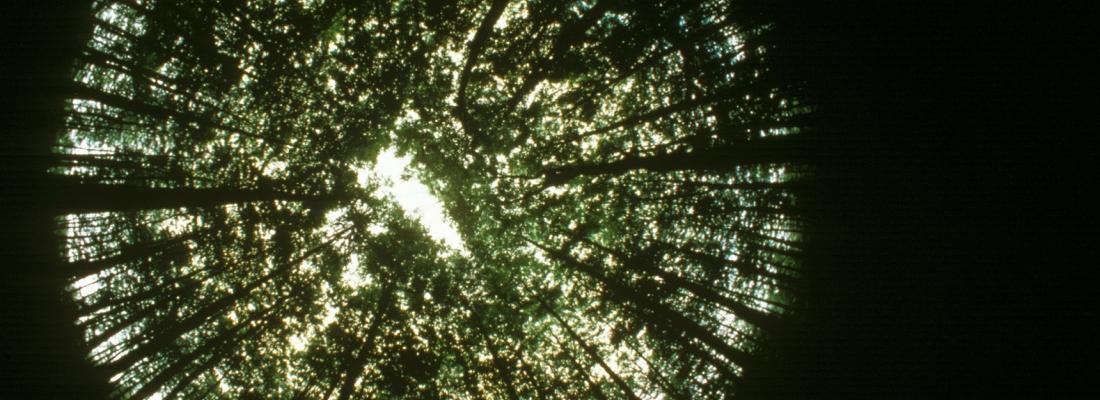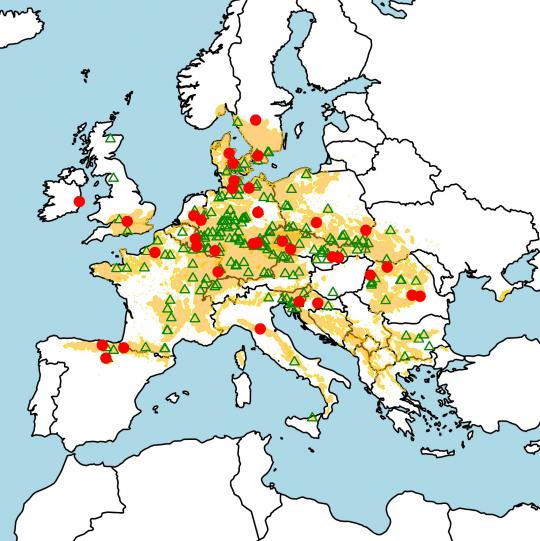Climate change and risks Reading time 3 min
A unique database providing information to quantify the adaptive capacity of beech to climate change
Published on 02 August 2018

The new database1published on 31st July 2018 in Scientific Data evaluates the genetic and phenotypic plasticity of European beech (Fagus sylvatica L.) across Europe. This compilation is the result of a European collaborative2project in which different populations from all over Europe were planted in genetic trials3located throughout the continent. Understanding how populations of a single species differ according to adaptation to their local environment allows us to better mitigate the effects of climate change on European forests. This represents a step forward from considering a species as a single botanical entity, since it makes it possible to evaluate and account for the climatic tolerance of different beech populations. The researchers measured trees taken from 217 sites across Europe that had been planted in 38 genetic trials in 17 countries. Thanks to the concerted effort of forest researchers across Europe to collect these data, we are able better understand the adaptive capacity of different beech populations and the geographical gradients of resilience to climate change; which threaten their persistence across their distribution range.

Understanding the tolerance of beech to climate change
Unlike other forestry trials established for commercial purposes, the genetic trials assessed by BeechCOSTe52 were specially designed to study genetic variation of European beeches across their distribution range. To date, BeechCOSTe52 is the most complete database for a forest species and it will allow researchers to better understand of how populations from different parts of Europe respond to being transplanted into new environments, and to determine their chances of survival in new habitats. An ongoing study will also make it possible to evaluate the climatic tolerance of different beech populations, in order to identify their tolerance limits, based on the genetic and plastic variation found in the measured traits collected in this database.
500,000 trees assessed and over 860,000 measurements compiled
For this project, researchers followed the development of the same trees over a period of 15 years as they grew from 2- to 17-years old, measuring phenotypic traits which serve as standard metrics for fitness; such as height, diameter at breast height, basal diameter, mortality, bud burst phenology in spring, and autumn leaf senescence. These data—862,095 measurements—offer information on the genotypic and phenotypic intra-specific variation present in beech as a species.
For the first time, BeechCOSTe52 is available to the general public at the following address: https://doi.org/10.5281/zenodo.1240931
Are French beech at risk due to climate change?
In the current context of climate change, the conservation of natural populations of various forest species in the southern part of their distribution range is being threatened. Researchers in France are particularly concerned since the climate in the south of the country may leave populations of certain species reaching the edge of their distribution range particularly vulnerable. BeechCOSTe52 will allow scientists to evaluate the tolerance limits of beech in southern France and to identify those populations that are at the highest risk. Additionally, the database will make it possible to recommend management practices—like the translocation of tree populations in the context of assisted migration—in order to mitigate for the effects of climate change.
1 BeechCOSTe52 database is available at 10.5281/zenodo.1240931
2 44 researchers from 17 European research centres contributed to this project, with the participation of three INRA joint research units: Biodiversity, Genes, and Communities (INRA, University of Bordeaux); Biogeochemical Cycles in Forest Ecosystems, (INRA, University of Lorraine); and Ecology of Mediterranean Forest (INRA).
3 A genetic trial or transplant experiment is a plantation of trees from different locations established under controlled conditions.
Phenotypic trait variation measured on European genetic trials of Fagus sylvatica L. T. Matthew Robson, Marta Benito Garzón & BeechCOSTe52 database consortium. Scientific Data volume 5, Article number: 180149 (2018). www.nature.com/articles/sdata2018149
